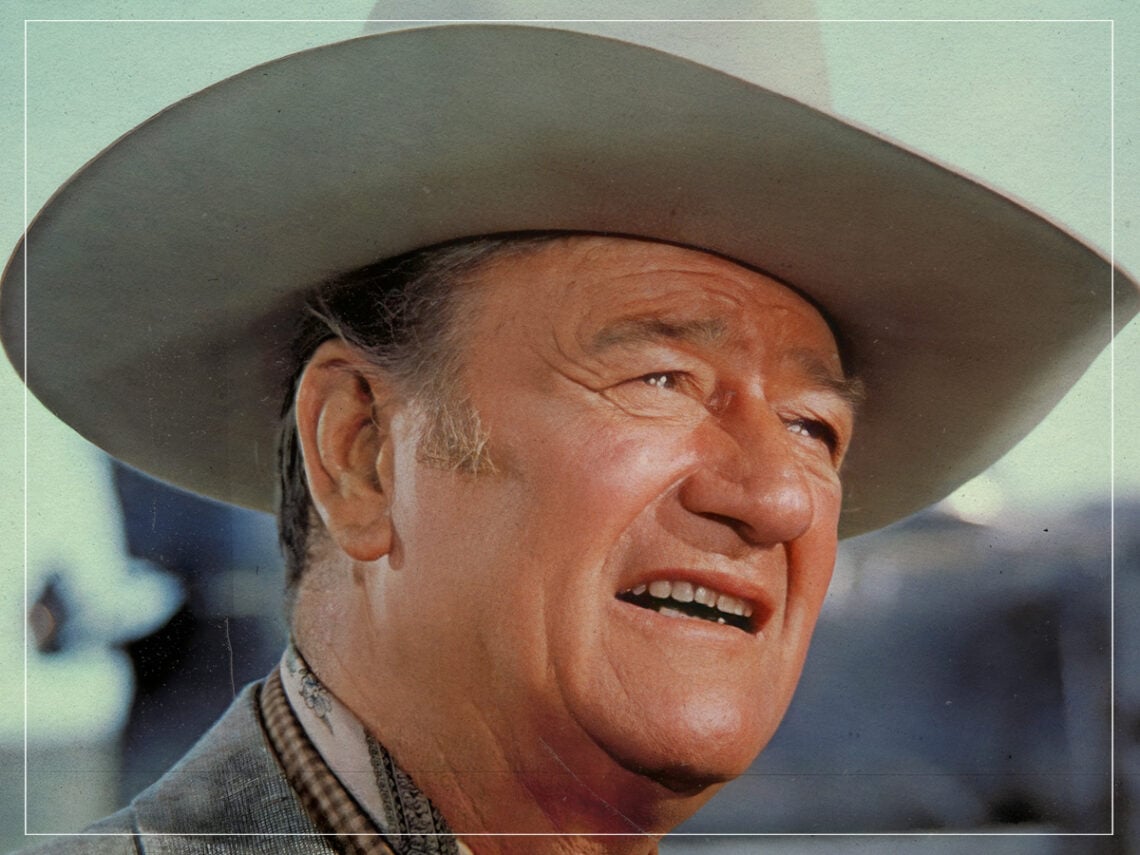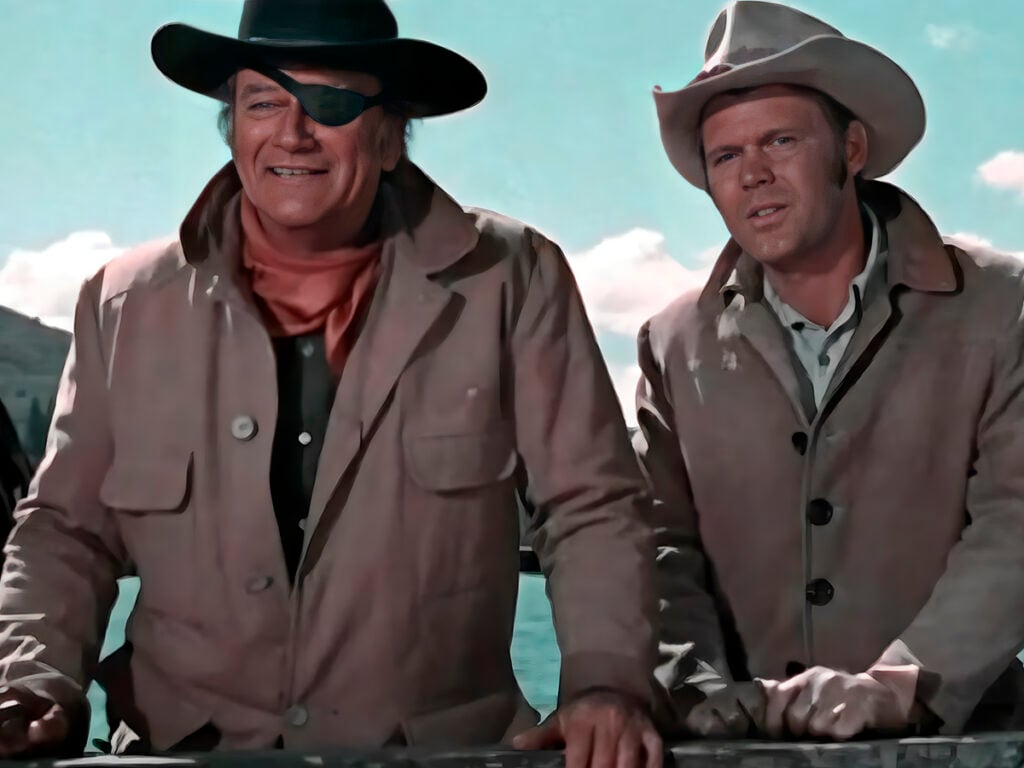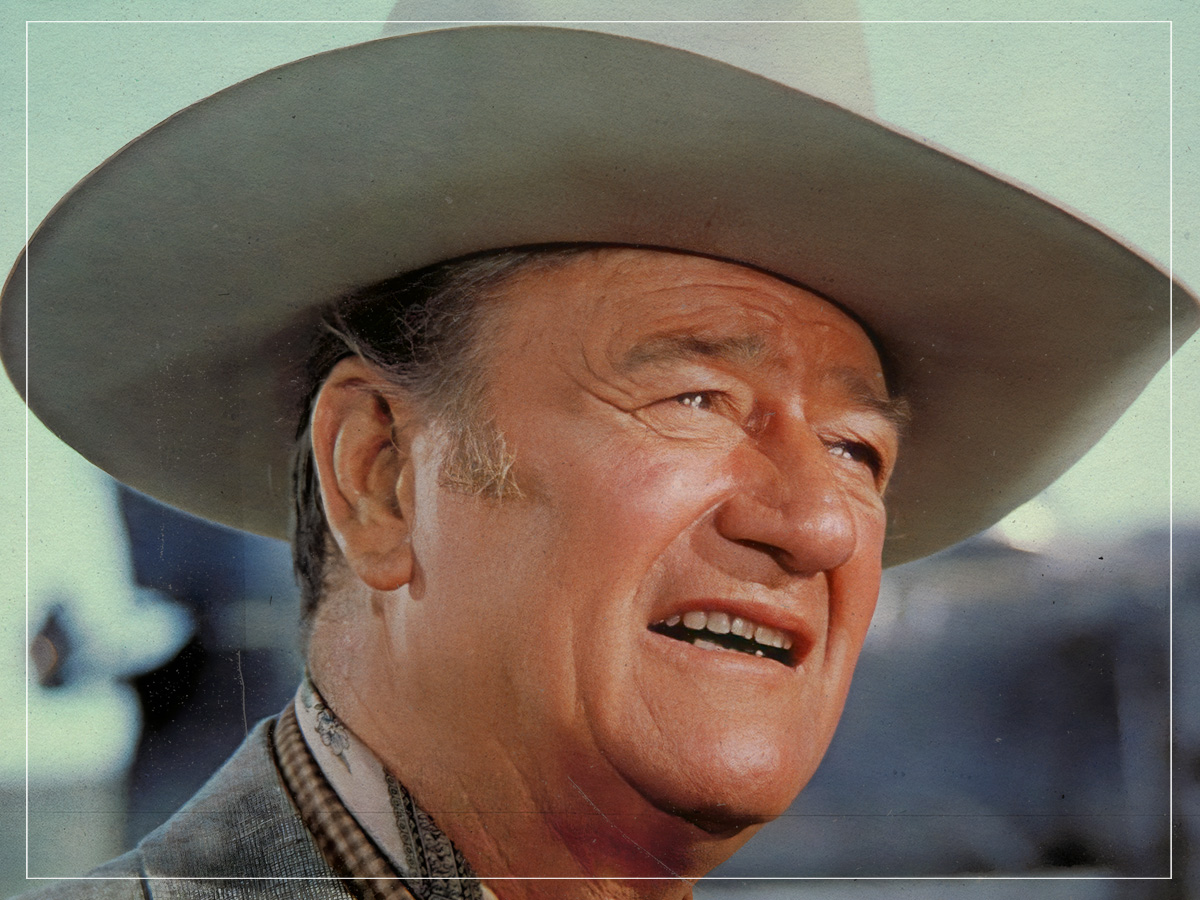
(Credits: Far Out / Paramount Pictures)
Mon 17 November 2025 16:15, UK
Becoming a star is only one aspect of becoming a hero of Hollywood. In truth, it is the maintaining of that stardom that sets apart the players and the legends. Few actors in the history of Hollywood cinema can be said to be quite as iconic as John Wayne, the face of the western genre throughout the 1950s and 1960s.
Collaborating with such early pioneers of the craft as John Ford and Howard Hawks, Wayne became known for his rugged characters daring to patrol the American frontier, delivering iconic performances in 1956’s The Searchers and 1962’s The Man Who Shot Liberty Valance, among other classics.
Since those decades, and as the societal norms have changed, the figure of Wayne has been routinely torn down. Having outlandish and, frankly, racist views will do that. But, before he was tarnished in that way, Wayne was the epitome of American cinema. Oozing class and potent patriotic vigour, Wayne found great success by essentially playing a rough, tough caricature of his own real-life persona.
Aware of such an identity on screen, Wayne told film critic Roger Ebert back in a 1969 interview that he was delighted to take on the Henry Hathaway movie True Grit, stating: “It’s sure as hell my first decent role in 20 years…and my first chance to play a character role instead of John Wayne. Ordinarily, they just stand me there and run everybody up against me”.
Though he thrived in the mid-20th century, becoming one of the most beloved actors of all time, the actor wasn’t afraid of making enemies, calling out multiple actors and filmmakers with whom he disagreed. Whether this was on set or in the papers, or even behind closed doors as part of an apparent effort to rid Hollywood of left-leaning performers, Wayne was never backwards in coming forward against his adversaries.
 John Wayne and Robert Duvall in ‘True Grit’. (Credits: Paramount Pictures)
John Wayne and Robert Duvall in ‘True Grit’. (Credits: Paramount Pictures)
In fact, for much of his professional life, Wayne operated as the cantankerous uncle you no longer enjoy spending time with. He may have delivered an affable charm on occasion, but his growing disdain for the world around him makes the time spent together far from enjoyable.
Wayne’s growing distrust of the changing of American culture was exemplified in his critique of some of the more adventurous parts of cinema. But while many would think his disdain was reserved only for those who made what he deemed “perverse” movies, he also held a certain amount of contempt for the actors and filmmakers with whom he shared similar social circles.
Such is detailed in the book John Wayne: My Father, written by the actor’s daughter, Aissa Wayne. “When it came to his contemporaries in film, I only heard him speak once with any real venom,” she wrote, before revealing that the actor in question was none other than the two-time Oscar winner Gene Hackman.
“Gene Hackman could never appear on-screen without my father skewering his performance,” Aissa added: “I wish I could tell you why he so harshly criticised Hackman, but he never went into detail”. Hackan rose to industry prominence in the same decade as Wayne’s Hollywood stature dwindled, starring in 1971’s The French Connection, 1974’s The Conversation and Young Frankenstein of the same year.
For whatever reason, Wayne wasn’t fond of Hackman at all, with Aissa further recalling: “Back then, however, my father called Hackman ‘the worst actor in town. He’s awful’”. Despite his clear hatred of Hackman, his daughter is sure that if her father was around today, he might like his films, stating: “Although it’s pure speculation, had my father lived to see more of his work, I think his view of Mr Hackman would have changed”.
Still, despite Wayne’s dislike of Hackman, the latter never took his criticism to heart, calling the former “one of the best actors ever”. In an interview from back in 1992, Hackman, who was hot off the back of the release of the Clint Eastwood ‘Best Picture’ winner Unforgiven, added: “I could never be the man he was, because his politics and mine would be incompatible, but you must admire how really good he was as an actor, in command of the scene and with such great charisma”.
Hackman wasn’t in bad company. Among some of Wayne’s most hated actors were incredible performers such as Marlon Brando, who upset Wayne with his infamous refusal of an Oscar. Clint Eastwood was another performer whose dalliances on screen rubbed Wayne the wrong way. Frank Sinatra endured a tirelessly bitter feud with ‘The Duke’ while Clark Gable was more simply labelled an “idiot” by the famed actor.
Sometimes, being one of the most beloved actors of all time isn’t enough. The changing of the guard was an event that shook Wayne to his core, and his lack of understanding of the new ways of cinema seemed to scare the fearless hero.
Take a look at the trailer for the influential revisionist western classic, Unforgiven below.
Related Topics
The Far Out John Wayne Newsletter
All the latest stories about John Wayne from the independent voice of culture.
Straight to your inbox.
